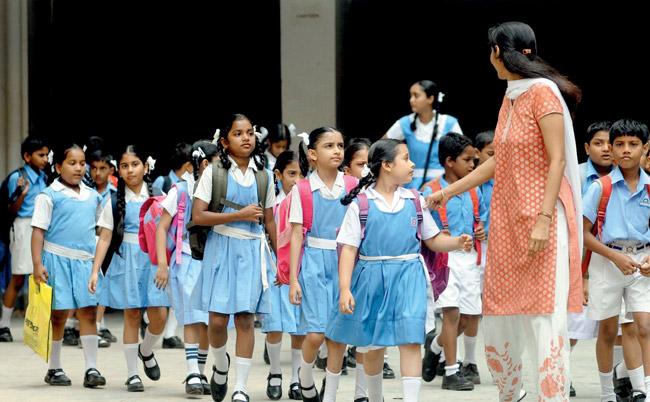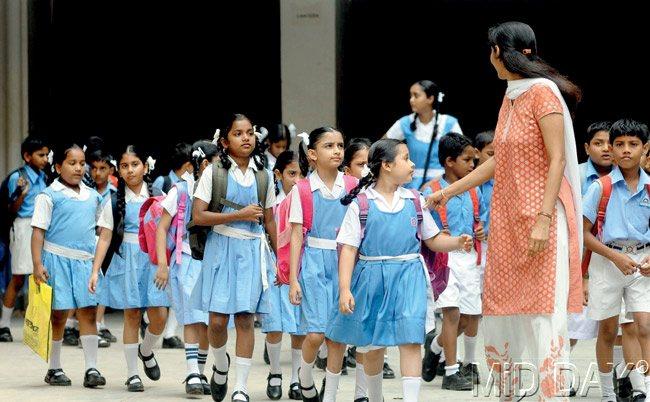Teachers in public schools are leaving their jobs, as they haven’t received their salaries, after waiting for approval from the education department for two years

With the implementation of the Right to Education (RTE) Act, every class is expected to follow 30/35:1 student teacher ratio, depending on the grade.

Too many to handle: Going by the complaints, the education department has not approved appointments since 2012. File pic
ADVERTISEMENT
However, most schools have been unable to fulfil the mandate. A series of complaints from schools across the city reveals that a number of teachers’ posts are lying vacant, with approval pending from the government. It seems that the education department has stopped approving appointments since 2012.
“Schools are finding it difficult to conduct regular classes as we don’t have teachers for important subjects like Science and languages. Time and again we have requested the department to approve posts, but it has fallen on deaf ears,” said Rajesh Pandya, a teacher at Fatimadevi English High School in Malad.
Many schools that hired teachers without the approval are now facing a crunch, as they have started to quit, after not receiving salaries from the time of appointment.
“As an aided institute, we charge a nominal fee from students, which is not enough to pay teachers’ salaries. Recently, when we decided to hire them any way, to continue classes, they left, as their approval was still pending at the education department and they were not getting any salary,” revealed the secretary of a school in Kurla.
The problems of private schools, however, are completely different. While they can pay their teachers, they are unable to find quality educators. Many school authorities blame the lack of quality on the training provided at B Ed colleges, claiming teachers don’t seem to be interested in enhancing their skills.
“While B Ed courses are updated from time to time, candidates who wish to become teachers are not interested in attending skill development or competency building workshops. They simply register their names for the course and show up for exams. This attitude is also reflected in their teaching,” said Arundhati Chavan, a member of the B Ed exam committee. She added that this trend is likely to change once schools stop hiring such teachers. “If schools put their foot down and ensure that only those teachers who have an overall understanding will be hired, candidates will have no option but to take their work seriously,” Chavan said.
Activists across the country are also highlighting the issue of lack of training of teachers to handle children with special needs. They are demanding schools and education boards to conduct workshops in order to train them. “Inclusion is an important aspect of RTE, and lack of trained teachers in this aspect poses a hindrance. As many schools can’t afford to have counsellors on board, they should ensure that teachers are provided training to avoid this problem,” said Dinaz Wadia, speech language therapist and counsellor.
 Subscribe today by clicking the link and stay updated with the latest news!" Click here!
Subscribe today by clicking the link and stay updated with the latest news!" Click here!







